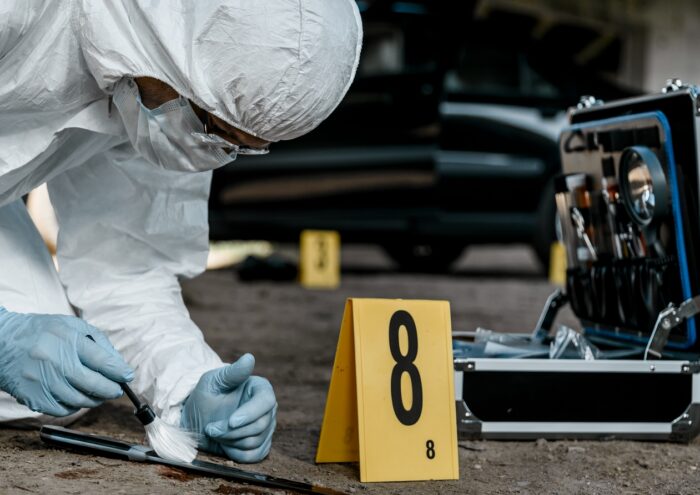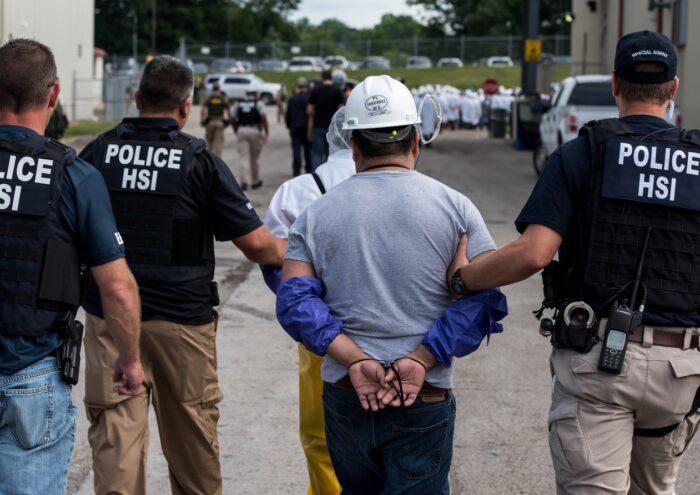
The world of criminal justice administration is a vast network of interwoven local and federal agencies. As the guardians of law and order, these agencies are responsible for addressing and stopping crime. A report by the U.S. Bureau of Justice Statistics 2012 says the system employed over 2.4 million individuals across diverse sectors such as law enforcement, corrections, forensics, and homeland security. Together, these sectors constitute the robust framework of the criminal justice system, which serves as the bulwark of societal stability and public safety.
1. Corrections Career Path

The correctional system lies at the heart of criminal justice, with its key responsibility being the enforcement of punishment, rehabilitation, and treatment of those who step outside the boundaries of the law. Suppose you’re contemplating a career in this vital field of corrections. In that case, you’ll encounter diverse roles, each carrying its unique set of duties and obligations.
Correctional officers: In the forefront, we have correctional officers. Stationed within the confines of jails and prisons, they bear the hefty responsibility of monitoring inmate activities, ensuring order, and prioritizing prisoner safety. Every day, they work tirelessly to maintain a secure and orderly environment that is crucial for the smooth operation of these facilities.
Probation officers and correctional treatment specialists: Alternatively, the role of probation officers and correctional treatment specialists might appeal to you. These professionals are the torchbearers of change for parolees, guiding them back into society with structured rehabilitation plans. They play an instrumental role in connecting these individuals to the support they need, which often includes counseling, job skills training, and educational programs.
To equip yourself for these challenging but rewarding career paths, consider pursuing a criminal justice public administration masters degree. This specialized academic program can give you the knowledge and skills needed to excel in this dynamic field. Combining the principles of public administration with the intricacies of criminal justice creates a robust foundation for anyone looking to make a significant impact within the corrections system.
2. Forensics Career Path

Diving into the realm of forensics, we delve into an intriguing world where science and justice intertwine. Forensics, at its core, is the application of scientific methods and techniques to unravel the truth behind crimes. The meticulous work of forensics brings a sense of clarity to the complexities of criminal activities, turning perplexing scenarios into comprehensible narratives.
Forensic science technician: If this field piques your interest, becoming a forensic science technician might be the right path for you. As a forensic science technician, you become the eyes and ears at a crime scene. Your role involves figuring out what pieces of evidence need to be collected and then methodically documenting, cataloging, and preserving these critical pieces of the puzzle. Photography skills come into play as you capture images of the scene and sketch out the scene to further enhance understanding. Your detailed observations and findings are then compiled into comprehensive reports that aid investigators and legal professionals in their quests for justice.
3. Homeland Security Career Path

If your passion lies in ensuring the safety and security of the country, then a career in Homeland Security could be your calling. This massive department is at the forefront of defending the nation’s borders, airports, seaports, and from potential threats.
Air marshal: One of the roles within this department is the air marshal. Working under the umbrella of the Transportation Security Administration, they are responsible for ensuring the safety of aircraft, airports, and passengers across the nation. Posing as consistent passengers, they have a sharp eye for detecting and preventing violent or criminal acts.
Customs and border patrolling agents: Another essential role is customs and border patrol agents. These agents work diligently to protect the nation’s borders against drug smuggling, illegal entry, and threats of terrorism. Their watchful eyes ensure the security of the country’s entry points and monitor travel to and from the United States.
Emergency management director: If coordinating responses to natural disasters and emergencies is more your speed, consider becoming an emergency management director. These professionals work with multiple agencies to develop and implement effective crisis strategies. They are the backbone of public safety, ensuring rapid and effective emergency response.
Secret Service agent: For those with a penchant for investigation and protection, the role of a Secret Service agent might be an appealing choice. These agents investigate financial crimes and ensure U.S. leaders’ safety, making a significant contribution to the nation’s security.
Each role plays a crucial part in Homeland Security, providing opportunities for individuals passionate about national defense and public safety. The career path you choose depends on your interests and strengths, but rest assured, each of these roles is indispensable in keeping the nation safe.
4. Law Enforcement Career Path

Law enforcement is a critical pillar of the criminal justice system, primarily tasked with maintaining law and order, investigating crimes, and ensuring public safety. As a broad field, it provides a spectrum of engaging career paths to consider.
Drug Enforcement Administration (DEA) agents: At one end, the Drug Enforcement Administration (DEA) agents work diligently to apprehend individuals flouting substance abuse laws. With their keen investigatory skills, they gather evidence and take action against those involved in drug trafficking, which is pivotal in curtailing this rampant issue.
Federal Bureau of Investigation (FBI) agents: Then we have the Federal Bureau of Investigation (FBI) agents, who are the vanguards against an array of crimes, ranging from white-collar offenses to public corruption and terrorism to violent crime. Their multifaceted role involves conducting thorough investigations, analyzing evidence, and testifying in court, thereby serving as the backbone of our justice system.
Inspectors and investigators: In a slightly different setting, we find fire inspectors and investigators who determine the causes and origins of fires. Their investigative skills lead them to analyze scenes, collect evidence, and work closely with laboratories to provide precise analysis. Their findings often serve as crucial evidence in court.
Police officers and detectives: Lastly, the traditional role of police officers and detectives is enduringly important. Their duty to safeguard the public, respond to crime reports, and solve criminal cases, makes them the bedrock of community security.
These diverse roles within law enforcement offer unique opportunities to serve society and make an impactful difference.
Conclusion
Navigating a career in criminal justice administration requires more than just professional qualifications. It demands dedication, integrity, and an unwavering commitment to serving the public. In conclusion, while each career path in criminal justice administration presents unique challenges and rewards, they all converge on the common goal of serving the public and maintaining societal harmony.
















